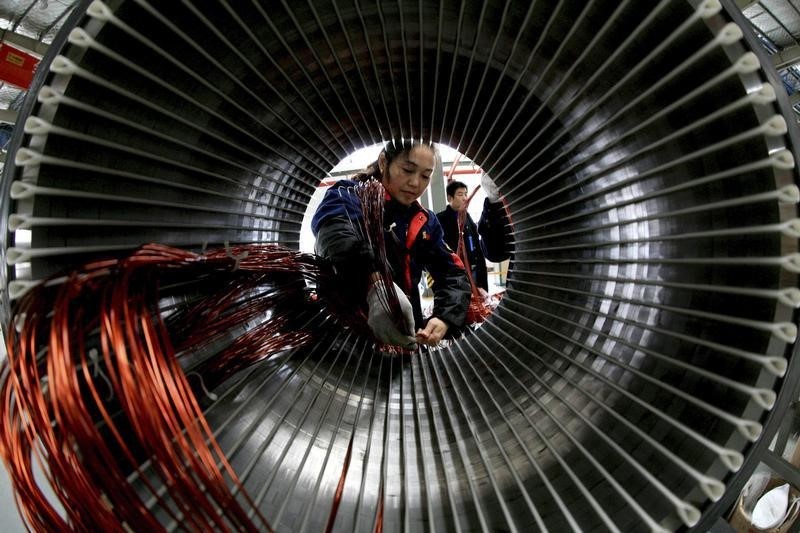Investing.com - Copper prices fell from the previous session's six-week high on Wednesday, as investors reacted to disappointing economic signals from China.
On the Comex division of the New York Mercantile Exchange, copper for May delivery shed 1.6 cents, or 0.61%, to trade at $2.624 a pound during European morning hours.
Futures were likely to find support at the $2.561, the low from February 23, and resistance at $2.668, the high from February 24.
Data released earlier showed that the preliminary reading of China’s HSBC manufacturing index ticked up to 50.1 in February, just above the 50.0-point level that separates growth from a contraction on a monthly basis.
Analysts had expected a reading of 49.5, down slightly from January's reading of 49.7.
Despite the modest uptick in the headline number, the data showed that export orders shrank at the fastest pace in 20 months, underlining concerns over the global economy.
Copper traders consider shifts in the HSBC PMI an indicator of China's copper demand, as the industrial metal is widely used by the sector.
The Asian nation is the world’s largest copper consumer, accounting for almost 40% of world consumption last year.
A day earlier, copper rallied to $2.668, the highest since January 13, before settling at $2.639, up 5.3 cents, or 2.05%, following the euro zone's decision to extend Greece's bailout by four months and after remarks by Federal Reserve Chair Janet Yellen tempered expectations for a mid-year rate hike.
Elsewhere on the Comex, gold futures for April delivery jumped $11.50, or 0.96%, to trade at $1,208.80 a troy ounce, while silver futures for May delivery rallied 31.5 cents, or 1.94% to trade at $16.54 an ounce.
In prepared remarks during testimony to the Senate Banking Committee on Tuesday, Fed Chair Yellen said it was “unlikely” that economic conditions would warrant an interest rate increase for “at least the next couple of FOMC meetings”.
She added that if the economy keeps improving as the Fed expects it will modify its forward guidance, but emphasized that a modification of its language should not be read as indicating that a rate hike would automatically happen within a number of meetings.
A delay in raising interest rates would be seen as bullish for gold, as it decreases the relative cost of holding on to the metal, which doesn't offer investors any similar guaranteed payout.
The U.S. dollar index, which measures the greenback’s strength against a trade-weighted basket of six major currencies, dipped 0.2% to 94.33.
Dollar weakness usually benefits gold, as it boosts the metal's appeal as an alternative asset and makes dollar-priced commodities cheaper for holders of other currencies.
